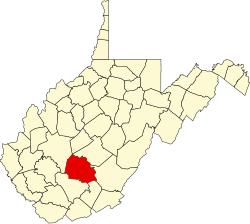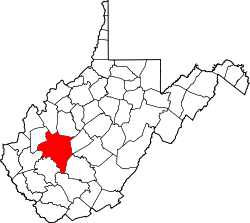2010 census
As of the census [9] of 2010, there were 1,638 people, 645 households, and 302 families living in the city. The population density was 1,043.3 inhabitants per square mile (402.8/km2). There were 838 housing units at an average density of 533.8 units per square mile (206.1 units/km2). The racial makeup of the city was 78.3% White, 17.4% African American, 0.5% Asian, 0.1% Pacific Islander, 0.9% from other races, and 2.8% from two or more races. Hispanic or Latino of any race were 1.8% of the population.
There were 645 households, of which 20.2% had children under the age of 18 living with them, 26.0% were married couples living together, 16.1% had a female householder with no husband present, 4.7% had a male householder with no wife present, and 53.2% were non-families. 43.7% of all households were made up of individuals, and 17.2% had someone living alone who was 65 years of age or older. The average household size was 1.97 and the average family size was 2.71.
The median age in the city was 30.1 years. 12.8% of residents were under the age of 18; 31.5% were between the ages of 18 and 24; 17.2% were from 25 to 44; 22.5% were from 45 to 64; and 16.1% were 65 years of age or older. The gender makeup of the city was 53.3% male and 46.7% female.
2000 census
As of the census [3] of 2000, there were 1,942 people, 725 households, and 326 families living in the city. The population density was 1,237.5 people per square mile (477.8 people/km2). There were 869 housing units at an average density of 553.7 units per square mile (213.8 units/km2). The racial makeup of the city was 76.47% White, 17.40% African American, 0.31% Native American, 3.76% Asian, 0.10% Pacific Islander, 0.46% from other races, and 1.49% from two or more races. Hispanics or Latinos of any race were 0.62% of the population.
There were 725 households, out of which 17.9% had children under the age of 18 living with them, 28.6% were married couples living together, 13.7% had a female householder with no husband present, and 54.9% were non-families. 42.2% of all households were made up of individuals, and 17.8% had someone living alone who was 65 years of age or older. The average household size was 2.03 and the average family size was 2.80.
The age distribution, which is strongly influenced by the presence of WVU Tech, is: 13.2% under the age of 18, 33.0% from 18 to 24, 17.9% from 25 to 44, 17.0% from 45 to 64, and 18.8% who were 65 years of age or older. The median age was 28 years. For every 100 females, there were 107.9 males. For every 100 females age 18 and over, there were 111.3 males.
The median income for a household in the city was $20,606, and the median income for a family was $32,000. Males had a median income of $27,794 versus $25,139 for females. The per capita income for the city was $12,663. About 25.7% of families and 37.1% of the population were below the poverty line, including 50.4% of those under age 18 and 13.7% of those age 65 or over.







